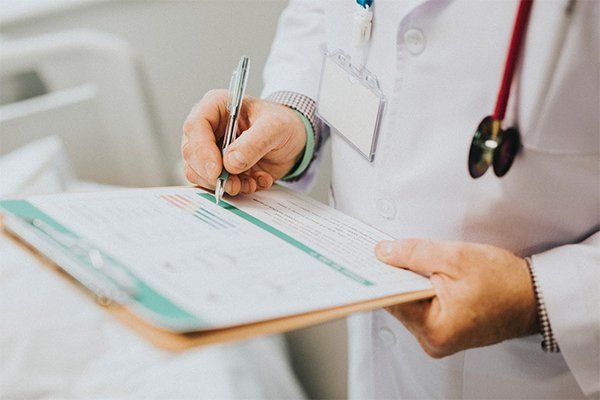4 Gastrointestinal Complications Associated With Diabetes

Gastrointestinal problems are embarrassing, but they may also indicate major problems, including uncontrolled diabetes. For this reason, take any gastrointestinal problem seriously. If you have experienced tummy troubles or you have diabetes, check out these four common gastrointestinal complications associated with diabetes.
1. Gastroparesis
Gastroparesis is a condition in which the stomach is unable to properly empty its contents in a regular fashion. As a result, food stays stuck in your stomach, which leads to heartburn, nausea, vomiting undigested food, bloating, and poor appetite. When food finally does leave the stomach, it can cause your blood sugar levels to suddenly increase.
Gastroparesis is typically caused by some kind of damage to the vagus nerve, which prevents it from sending signals to the stomach to contract to digest the food.
Treatment for gastroparesis may include diet changes (avoiding hard-to-digest foods like apple skins and fatty foods), medications to help stimulate the stomach and surgery. Without treatment, you may experience blood sugar spikes, bacteria growth from fermented food in the stomach, a bezoar, dehydration, and malnutrition.
2. Oral Thrush
Oral thrush is from an overproduction of yeast in your mouth. There are many causes, but if you have uncontrolled diabetes, you likely have a weak immune system and high blood sugar levels: the perfect combination for the fungus that causes thrush (Candida albicans) to thrive. If you have taken antibiotics for another infection, or if you do not have many probiotics in your system, your risk of thrush increases.
Oral thrush can be passed to another person if you kiss them while affected. Luckily, the treatment for thrush is simple: medication. Your doctor may prescribe one or more antifungal medications to kill the infection. During treatment, be careful when brushing your teeth so you do not scrape the bumps from thrush. Once your thrush has been treated, make sure to get a new toothbrush.
3. Ulcer Disease
Your stomach's digestive juices are powerful enough to break down the lining of your stomach. However, a mucus membrane usually serves as protection. Many people with terrible diets and who suffer from uncontrolled diabetes, however, may start to develop peptic ulcers as the mucus layer thins, exposing the sensitive stomach lining.
These can result in severe burning pain in the stomach, and they can bleed. Since diabetes impacts your body's ability to clot blood, these ulcers commonly bleed and bleed often, which can lead to anemia and other complications. Treatment often involves medications to help reduce the acid level in your stomach, but if treatment does not work, untreated ulcers can often lead to stomach cancer.
4. Diarrhea
Although researchers are not completely clear regarding the connection between diabetes and diarrhea, many diabetic-related factors increase the risk of diarrhea. For the most part, however, diabetes causes chronic diarrhea because of nerve damage. High levels of blood sugar damages nerves, including the nerves that control your gastrointestinal tract.
One or two bouts of diarrhea may not pose a problem, but chronic diarrhea can lead to major dehydration. Treatments include medications, antibiotics (if bacteria overgrowth is part of the problem), probiotics, and dietary changes (avoiding foods high in fat and sticking with foods high in potassium).
Diabetes affects every part of your body, including your gastrointestinal tract. At the very least, it can lead to occasional diarrhea, but in more severe cases, patients have trouble digesting and processing their food.
If you would like to know more about diabetes and how it affects your stomach and intestines, or if you are ready to start talking about treatment, contact us at Kentuckiana Gastroenterology & Paramount Surgery Center today.

















